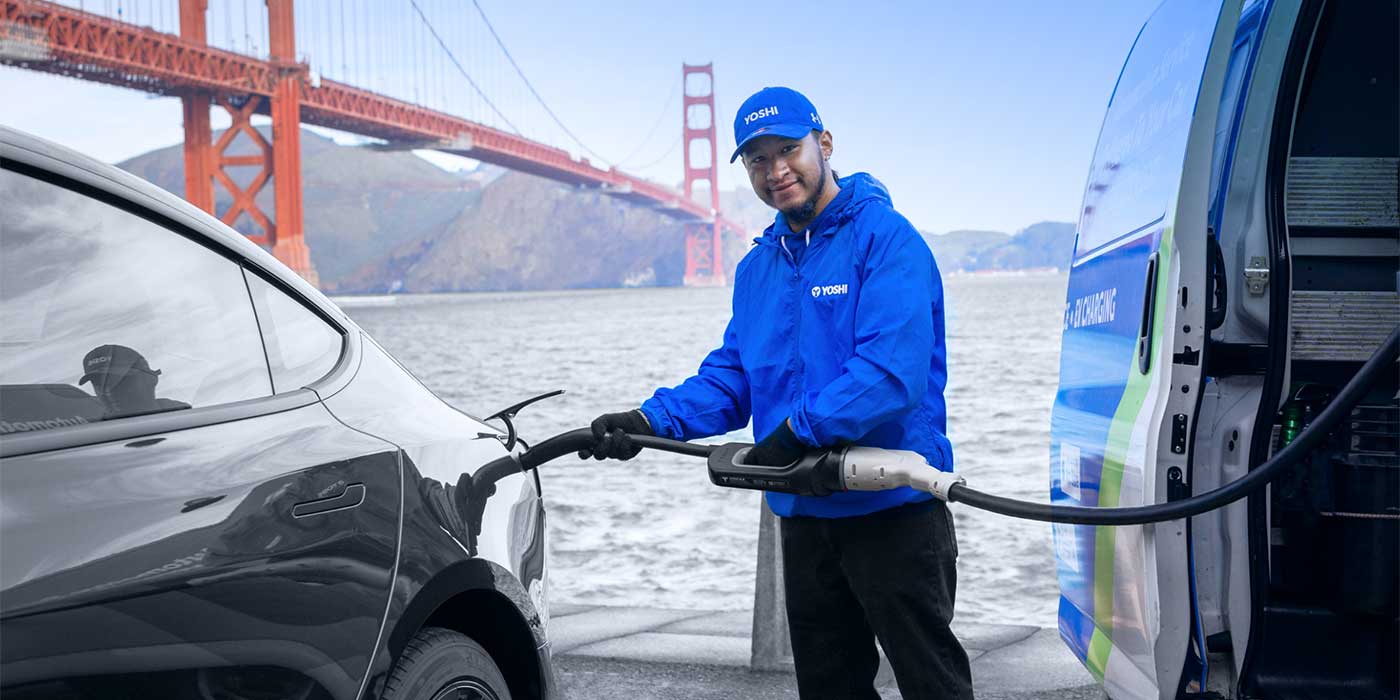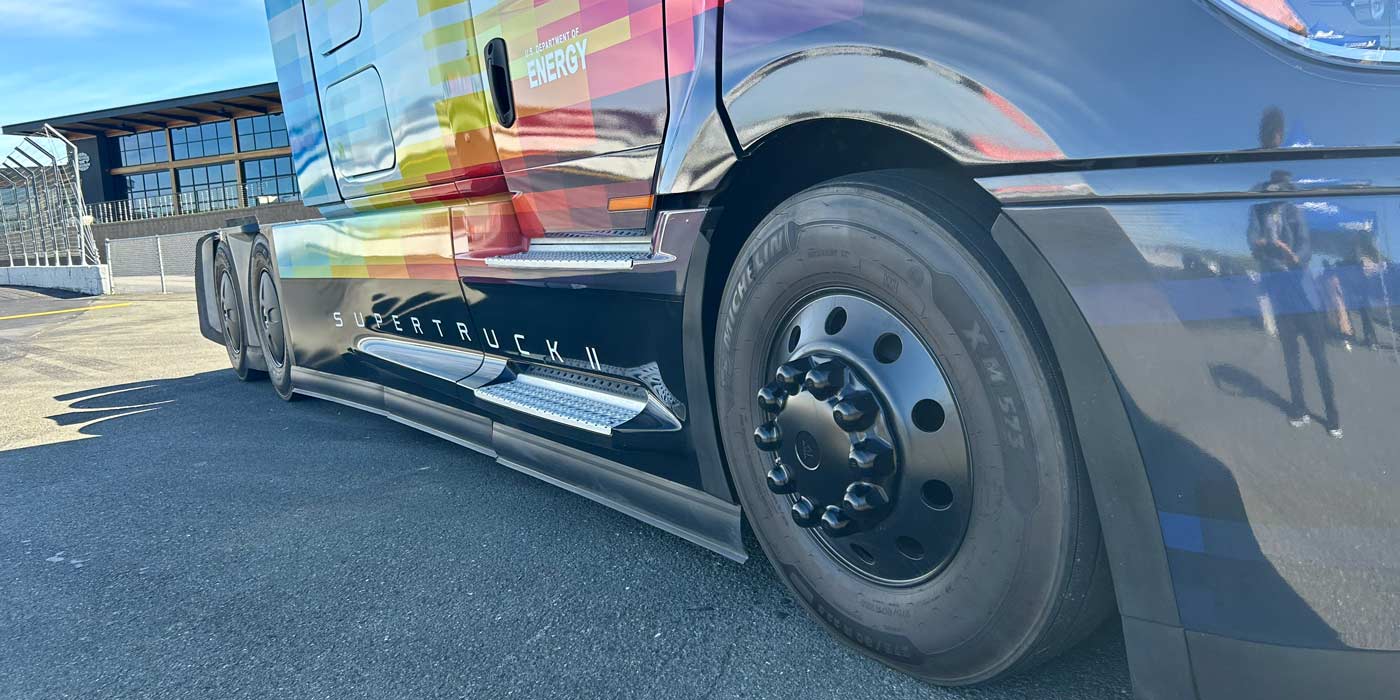The question was posed to me last week: If the Port of Ephrata was concerned about the legitimacy of Washington Tire Corp., why didn’t they just Google it? Certainly five minutes of due diligence online would answer their questions.
Well, not really. In fact, if you Google “Washington Tire Corp.” you’re more apt to find something from Tire Review than any revelations about the company. In fact, there is very little of the lives of WTC and its predecessors or its president Abraham Hengyucius to be found in the interwebs. He doesn’t even have a Facebook page.
But you’d be on the right track. Thanks to a helpful tip from friend of the show Kurt Hartman, we dropped in on the website for Washington State Secretary of State Sam Reed. That led to a one-hour trip up, around and through the interwebs as we tracked down some current history of WTC. Oh, and the interwebs delivered another peach to the basket, as well. Read on.
A quick free search on the Secretary of State’s site revealed that “Washington Tire Corporation” actually did file paperwork to be incorporated, back on July 18, 2008. (I have sent for paper copies of the incorporation documents.)
Except said incorporation was listed to expire on July 18, 2010. Oops!
In the filing, the listed president for the company was one “Abe Hengyucius,” with a listed business address of 3600 Port of Tacoma Rd., in Tacoma, Wash. Which happens to be a five-story office building (The Fabulich Center) near Foreign Trade Zone #86 at Tacoma seaport. WTC had a two-office area on the building’s fifth floor, at least in 2009….the Fabulich Center hasn’t bothered to update its website in quite a while, but there is no current listing for WTC in the Tacoma area.
That Free Trade Zone is described as “833 acres (333 hectares) of Port-owned land in 19 sites. Some sites are adjacent or very near Port terminals,” according to the port’s website.
Back to the incorporation filing. The listed agent on the transaction was located at 3118 Judson St., #770 in Gig Harbor, Wash., just south of Tacoma. Google Earth shows that address to be in a strip mall that includes a barbershop and offices/store for the U.S. Golf Association. There was no company name attached to the listed agent, just an individual whose role with WTC is unclear.
Now, back to finding other cool things on the interwebs. Seems one of Hengyucius’ former companies – American Seashores International – was back in the news thanks to a big court case that was decided against it last week. A $1.5 million dollar verdict, in fact, from a suit originally filed in February 2008.
And why was American Seashores/American Tire Corp. sued? I’ll let the Second District Court of Appeals for the state of California tell the story. Thanks to Leagle.com, here is the entire text of the court decision:
USA TIRE MARKETING, INC. v. AMERICAN SEASHORES INTERNATIONAL, INC.
USA TIRE MARKETING, INC., Plaintiff and Respondent,
v.
AMERICAN SEASHORES INTERNATIONAL, INC., Defendant and Appellant.
No. B216135.
Court of Appeals of California, Second District, Division Three.
Filed August 26, 2010.
Law Offices of Joel F. Tamraz and Joel F. Tamraz for Defendant and Appellant.
Alan D. Wilner and Elkanah J. Burns for Plaintiff and Respondent.
Defendant and appellant American Seashores International, Inc., aka American Tire Corporation (Seashores) appeals an order denying its motion to vacate a default judgment obtained by plaintiff and respondent USA Tire Marketing, Inc. (plaintiff).
The essential issue presented is whether the trial court abused its discretion in denying the motion by Seashores for relief pursuant to Code of Civil Procedure sections 473 and 473.5.[ 1 ]
On the record presented, we perceive no abuse of discretion and affirm the order.
FACTUAL AND PROCEDURAL BACKGROUND
1. The complaint and service thereof.
On February 5, 2008, plaintiff filed a verified complaint against Seashores setting forth the following five causes of action: breach of contract; breach of implied warranty; fraud (intentional misrepresentation); fraud (negligent misrepresentation); and fraud (suppression of fact).
The complaint alleged in pertinent part: Plaintiff is a Canadian corporation whose principal place of business is in Granby, Quebec, Canada. Seashores is a California corporation whose principal place of business is in El Monte, California. Seashores is the producer of giant off road tires which are manufactured in factories in China. In September 2005, plaintiff entered into a distributorship agreement with Seashores. Plaintiff entered into a series of agreements with Seashores for the purchase of tires and made partial prepayment on the orders. Seashores made delivery of the tires, which were defective. Plaintiff gave notice to Seashores of the defect and Seashores refused to cure. Plaintiff sought, inter alia, recovery of $87,855 in prepayments to Seashores for undelivered tires, $290,014 paid for defective tires, $25,257 expended for freight fees, and lost profits of $888,234, plus interest and attorney fees.
On March 15, 2008, Seashores was located at 10501 Valley Boulevard, suite 1189, in El Monte. The proof of service reflects the summons and complaint were left on that date with a person apparently in charge at the office or usual place of business. Thereafter, copies were mailed to Seashores at the address where the copies were left.
The location the papers were served was consistent with the statement of information filed by Seashores with the California Secretary of State just one week earlier, on March 7, 2008. That filing designated 10501 Valley Blvd, suite 1189, El Monte, CA 91731, as the street address of Seashores’s principal executive office, the mailing address of the corporation, and the street address of Seashores’s agent for service of process.
Seashores did not answer the complaint.
2. Entries of default and default judgment.
On May 1, 2008, pursuant to plaintiff’s request, the trial court entered Seashores’ default on the complaint.
On October 23, 2008, plaintiff filed a request for entry of default judgment, seeking damages of $1,242,552 plus $271,314 in interest, for a total of $1,514,243. The application was supported by the declaration of Gil Tournay, CEO of the plaintiff corporation. The Tournay declaration stated in pertinent part: "34. As a proximate result of the fraudulent conduct of Defendant as herein alleged, Plaintiff entered into the subject contracts for the tires, entered into contracts with third parties to purchase the tires from Plaintiff, and made the prepayments as alleged herein and has been damaged in the sum of $290,014.00 paid for defective tires, $87,855.24 for undelivered tires, $25,257.19 expended for freight and duties, and $839,426.00 in lost profits for a total of $1,242,552.43. [¶] 35. Plaintiff seeks compensatory damages in the amount of $1,242.552.43 together with prejudgment interest and costs." The interest calculation was 10 percent per year from July 7, 2006 to September 22, 2008, a period of 797 days, at $340.42 per day.
On October 23, 2008, the trial court entered a default judgment pursuant to plaintiff’s written declaration. (§ 585, subd. (d).) The trial court awarded plaintiff $1,242,552.43 in damages, $271,314.74 in prejudgment interest and $376.50 in costs, for a total of $1,514,243.67.
3. Seashores’s motion to set aside default and default judgment.
On March 10, 2009, four and a half months after the default judgment was entered, Seashores filed a motion to set aside the default and default judgment pursuant to sections 473 and 473.5, contending the judgment was taken against Seashores as a result of "surprise, inadvertence, or excusable neglect."
The moving declaration of Emily Guo, owner and president of Seashores, asserted she was never served with the summons and complaint. Guo denied ever being served "either at 10501 Valley Boulevard, No. 1189, El Monte, California 91731, nor at the stated office of the business as listed by the Secretary of State, that being 15421 East Gale Avenue, City of Industry, California 91715." Guo stated she did not see the complaint until she obtained a copy from plaintiff’s counsel following entry of the default judgment on October 23, 2008.[ 2 ]
The moving papers were also supported by the declaration of Abraham Hengyucius. He stated he was no longer the president of Seashores, and that he was never served with the summons and complaint in this action.
4. Opposition papers.
The opposition papers contended the motion to vacate the default judgment was untimely in that by mid-December 2008, Seashores was aware of the default judgment, as evidenced by a telephone call from attorney James Wang, on behalf of Seashores, requesting that plaintiff stipulate to vacate the default judgment. However, Seashores waited another three months, until March 10, 2009, before bringing the subject motion to set aside the default. The opposition papers argued the unexplained delay of three months in seeking relief from default supported a denial of the motion on that basis alone.
The opposition papers further contended that in any event, service of the summons and complaint was valid and Seashores’s failure to respond was caused by its own inexcusable neglect. Specifically, "[i]n order to comply with the requirements of . . . [section] 415.20 to effect service on a corporation, the papers must be delivered to a person apparently in charge during normal business hours and, thereafter, a copy of the papers must be mailed to the person to be served at the place of delivery. The process server must set forth in his affidavit of service facts showing that those requirements have been met. . . . [¶] In the instant case, all of those requirements were met. . . . Seashores was properly served, at 10501 Valley Blvd., [suite] 1189, El Monte, CA 91731 (the address on file with the California Secretary of State), by leaving a copy of the Summons and Complaint with the person apparently in charge and thereafter mailing a copy to the person to be served as [sic] the place of delivery."
5. Trial court’s ruling.
On April 6, 2009, the matter came on for hearing. The trial court denied the motion, stating: "Defendant was properly served via sub-service at 10501 Valley Boulevard, Suite 1189 in El Monte, which was defendant’s address of record with the Secretary of State at the time of service. Numerous court documents were sent to defendant at the El Monte address, none of which was returned by the post office. [¶] Defendant does not deny that they were actually operating out of the El Monte address at the time of service. [¶] Accordingly, defendant’s claim of lack of actual notice is simply not credible. Defendant also waited almost three months after defendant admits it had actual notice of the default before moving to set aside the default. [¶] Under all of the circumstances, it appears that defendant was simply ignoring this claim for reasons of their own. Accordingly, the motion is denied." (Italics added.)
Seashores filed a timely notice of appeal from the order refusing to set aside the default judgment.[ 3 ]
CONTENTIONS
Seashores contends: the trial court abused its discretion in denying the motion to set aside the default judgment because Seashores submitted a valid verified answer contemporaneously with the motion which placed in issue triable issues of fact which should have been tried on their merits; the trial court abused its discretion in refusing to vacate the default judgment because the proof of service and actual service of the complaint upon Seashores were invalid; and the trial court erred in refusing to vacate the default because the damages awarded far exceeded the damages prayed for in the complaint, and included unsubstantiated lost profits of $808,624 based upon unsubstantiated defects in the tires, so that the judgment is not supported by competent evidence.
DISCUSSION
1. General principles.
a. Pertinent statutes.
Section 473 provides in relevant part at subdivision (b): "The court may, upon any terms as may be just, relieve a party or his or her legal representative from a judgment, dismissal, order, or other proceeding taken against him or her through his or her mistake, inadvertence, surprise, or excusable neglect. Application for this relief shall be accompanied by a copy of the answer or other pleading proposed to be filed therein, otherwise the application shall not be granted, and shall be made within a reasonable time, in no case exceeding six months, after the judgment, dismissal, order, or proceeding was taken."
Section 473.5, which also was invoked by Seashores, states at subdivision (a): "When service of a summons has not resulted in actual notice to a party in time to defend the action and a default or default judgment has been entered against him or her in the action, he or she may serve and file a notice of motion to set aside the default or default judgment and for leave to defend the action. The notice of motion shall be served and filed within a reasonable time, but in no event exceeding the earlier of: (i) two years after entry of a default judgment against him or her; or (ii) 180 days after service on him or her of a written notice that the default or default judgment has been entered."
Discretionary relief "based upon a lack of actual notice under section 473.5 empowers a court to grant relief from a default judgment where a valid service of summons has not resulted in actual notice to a party in time to defend the action. [Citations.] A party seeking relief under section 473.5 must provide an affidavit showing under oath that his or her lack of actual notice in time to defend was not caused by inexcusable neglect or avoidance of service. [Citations.]" (Anastos v. Lee (2004) 118 Cal.App.4th 1314, 1319.)
b. Deferential standard of appellate review.
In determining whether to grant or deny relief from default under the discretionary provisions of section 473, subdivision (b), the trial court is vested with broad discretion and its factual findings are entitled to deference. (Solv-All v. Superior Court (2005) 131 Cal.App.4th 1003, 1007.) The appropriate test for abuse of discretion is whether the trial court exceeded the bounds of reason. (Anastos v. Lee, supra, 118 Cal.App.4th at pp. 1318-1319.)
Similarly, the trial court’s ruling on a motion for relief brought pursuant to section 473.5 is reviewed for an abuse of discretion. (Anastos v. Lee, supra, 118 Cal.App.4th at p. 1319; Sakaguchi v. Sakaguchi (2009) 173 Cal.App.4th 852, 861-862.) Where the affidavits and evidence presented on a motion to vacate a default judgment are "sharply conflicting upon the question of whether or not [defendant] was personally served with summons as required by law, we cannot disturb the finding of the trial court in this respect whatever might be our feeling with respect to the weight of the evidence." (Penland v. Goodman (1941) 44 Cal.App.2d 14, 16.)
2. Failure by Seashores to seek relief from default and default judgment within a reasonable time was sufficient basis for denial of relief.
In moving for relief below, Seashores contended the motion was timely because it was made within less than six months of the default judgment. However, the trial court found the motion was untimely. In denying the motion for relief, the trial court ruled, inter alia, "Defendant also waited almost three months after defendant admits it had actual notice of the default before moving to set aside the default." The trial court’s resolution of the timeliness issue was correct.
Both sections 473 and 473.5 require a motion for relief to be made within a reasonable time, in no event exceeding the time specified by statute.
In order to qualify for discretionary relief under section 473, the moving party must act diligently in seeking relief. (Elston v. City of Turlock (1985) 38 Cal.3d 227, 234.) "`It has long been the law in California that a party must be prompt in seeking relief under section 473. Delays of three months or more routinely result in denial of relief where there is no explanation for the delay. [Citation.] As our Supreme Court stated in Benjamin v. Dalmo Mfg. Co. (1948) 31 Cal.2d 523, 529 [190 P.2d 593]: `Courts do not relieve litigants from the effects of mere carelessness. Defendant has not cited, nor has independent research disclosed, any case in which a court has set aside a default where, in making application therefor, there has been an unexplained delay of anything approaching three months after full knowledge of the entry of the default.’" (Billings v. Health Plan of America (1990) 225 Cal.App.3d 250, 258, fn. 5, italics added; accord, Caldwell v. Methodist Hospital (1994) 24 Cal.App.4th 1521, 1525.)
Here, it is uncontroverted that by mid-December 2008, Seashores was aware of the default judgment, yet it did not move for relief under sections 473 and 473.5 until March 10, 2009. This unexplained three-month delay by Seashores was a sufficient basis for the trial court to deny relief.
Nonetheless, we address Seashores’s remaining arguments.
3. Trial court properly found Seashores was duly served; trial court expressly found Seashores’s claim of lack of notice was not credible.
A summons may be served on a corporation "by leaving a copy of the summons and complaint during usual office hours in his or her office or, if no physical address is known, at his or her usual mailing address, other than a United States Postal Service post office box, with the person who is apparently in charge thereof, and by thereafter mailing a copy of the summons and complaint by first-class mail, postage prepaid to the person to be served at the place where a copy of the summons and complaint were left. When service is effected by leaving a copy of the summons and complaint at a mailing address, it shall be left with a person at least 18 years of age, who shall be informed of the contents thereof." (§ 415.20, subd. (a).)
The record reflects the above requirements were fully satisfied. The proof of service indicates that on March 15, 2008, at 4:00 p.m., Seashores was served by substituted service at 10501 Valley Boulevard, suite 1189, in El Monte. The proof of service reflects the summons and complaint were left with a person apparently in charge at the office or usual place of business, who was informed of the general nature of the papers. Thereafter, copies of the papers were mailed to Seashores at the same address where the summons and complaint were left.
Further, the location of service of process on March 15, 2008, was consistent with the statement of information filed by Seashores with the California Secretary of State the previous week, on March 7, 2008. That filing designated 10501 Valley Blvd, suite 1189, El Monte, CA 91731, as the street address of Seashores’s principal executive office, the mailing address of the corporation, and the street address of Seashores’s agent for service of process.
To reiterate, the trial court found "Defendant was properly served via sub-service at 10501 Valley Boulevard, Suite 1189 in El Monte, which was defendant’s address of record with the Secretary of State at the time of service. Numerous court documents were sent to defendant at the El Monte address, none of which was returned by the post office. [¶] Defendant does not deny that they were actually operating out of the El Monte address at the time of service. [¶] Accordingly, defendant’s claim of lack of actual notice is simply not credible."
This court must defer to the trial court’s determination on the movant’s credibility. On this record, the trial court properly found Seashores was duly served with the summons and complaint at the 10501 Valley Boulevard address and it was entitled to disbelieve Seashores’s assertion to the contrary.
4. No merit to Seashores’s argument re damages.
Seashores contends the damages awarded were far greater than the damages prayed for in the complaint. The argument is meritless.
The complaint requested, inter alia, recovery of $87,855 in prepayments to Seashores for undelivered tires, $290,014 plaintiff paid for defective tires, $25,257 expended for freight fees, as well as lost profits of $888,234, for total damages of $1,291,450, plus interest and attorney fees. The trial court awarded plaintiff damages of $1,242,552.43 plus $271,314.74 in interest, for a total of $1,514,243.67. Thus, the amount of damages awarded was actually less than the amount prayed for in the complaint.
Seashores also contends the judgment includes unsubstantiated "lost profits" of $808,624 based upon "unsubstantiated" defects in the tires, so that the judgment is not supported by competent evidence.[ 4 ] A defaulting defendant may obtain appellate review on the question whether the damages awarded were excessive. (Johnson v. Stanhiser (1999) 72 Cal.App.4th 357, 361.) However, Seashores’s challenge to the amount of the damage award is meritless.
The declaration filed by plaintiff in support of the default proveup stated: "34. As a proximate result of the fraudulent conduct of Defendant as herein alleged, Plaintiff entered into the subject contracts for the tires, entered into contracts with third parties to purchase the tires from Plaintiff, and made the prepayments as alleged herein and has been damaged in the sum of $290,014.00 paid for defective tires, $87,855.24 for undelivered tires, $25,257.19 expended for freight and duties, and $839,426.00 in lost profits for a total of $1,242,552.43. [¶] 35. Plaintiff seeks compensatory damages in the amount of $1,242.552.43 together with prejudgment interest and costs."
Where, as here, an issue is tried on declarations, the rule on appeal is that those declarations "`"favoring the contention of the prevailing party establish not only the facts stated therein but also all facts which reasonably may be inferred therefrom, and where there is a substantial conflict in the facts stated, a determination of the controverted facts by the trial court will not be disturbed."’" (Enyart v. City of Los Angeles (1999) 76 Cal.App.4th 499, 508, fn. 3.)
Given the uncontested showing made by plaintiff on the default proveup, we reject Seashores’s contention the damages awarded were excessive.[ 5 ]
DISPOSITION
The order denying the motion to vacate the default judgment is affirmed. Plaintiff shall recover costs on appeal.
We concur.
CROSKEY, J.
KITCHING, J
1. Unless otherwise specified, all further statutory references are to the Code of Civil Procedure.
2. The Guo declaration also asserted "American Seashores International, Inc. is a completely separate legal entity from American Tire Corporation." This claim is negated by Seashores’s own papers, including its notice of appeal which refers to "American Seashores International, Inc., a corporation, aka American Tire Corporation."
3. An order denying a statutory motion to vacate a judgment, such as a motion made under section 473 or section 473.5, is appealable as an order after judgment. (Prieto v. Loyola Marymount University (2005) 132 Cal.App.4th 290, 294, fn. 4; 9 Witkin, Cal. Procedure (5th ed. 2008) Appeal, § 200, p. 276.)
4. "[E]vidence which is admitted in the trial court without objection, [even if] incompetent, should be considered in support of that court’s action." (Estate of Fraysher (1956) 47 Cal.2d 131, 135.)
5. The conclusionary argument in Seashores’s opening brief regarding the trial court’s evidentiary rulings merits no discussion.















